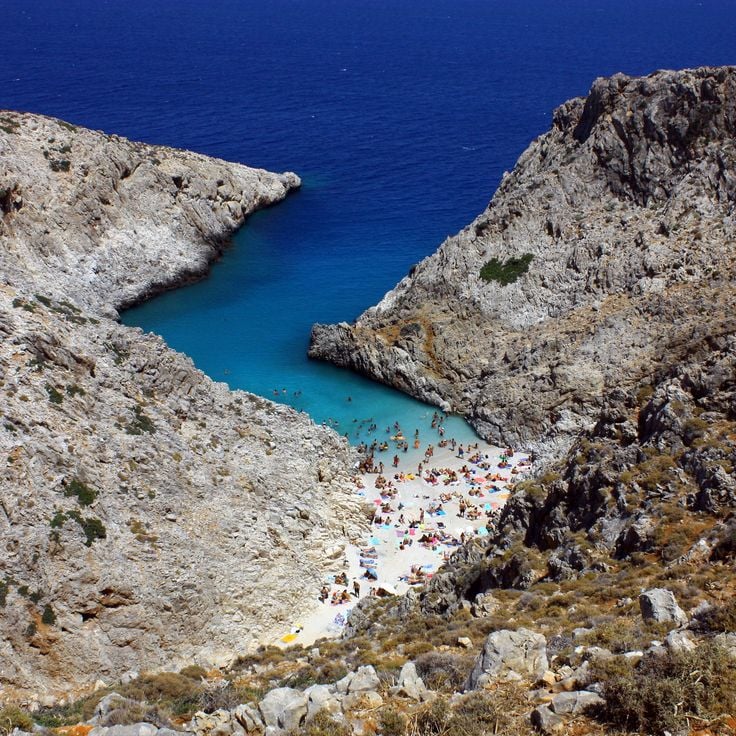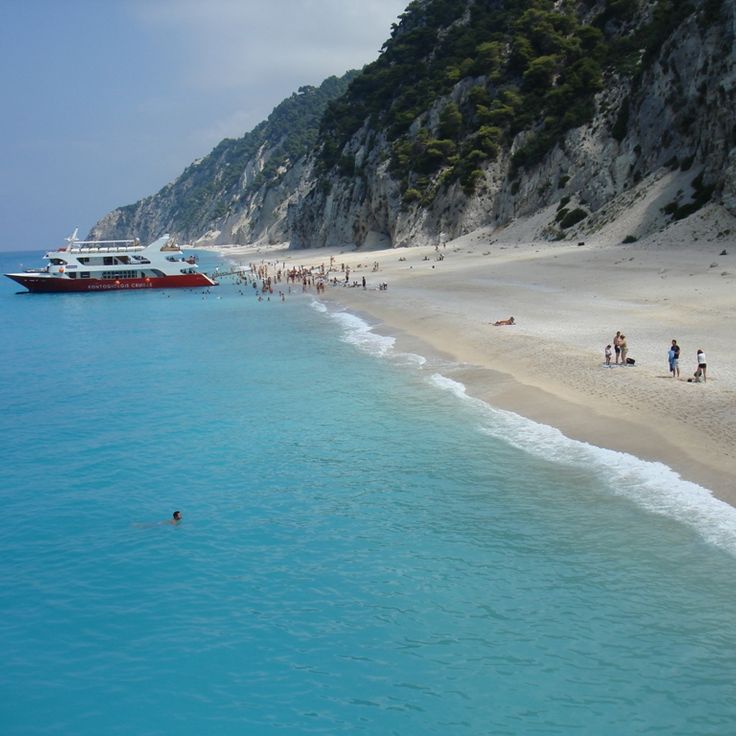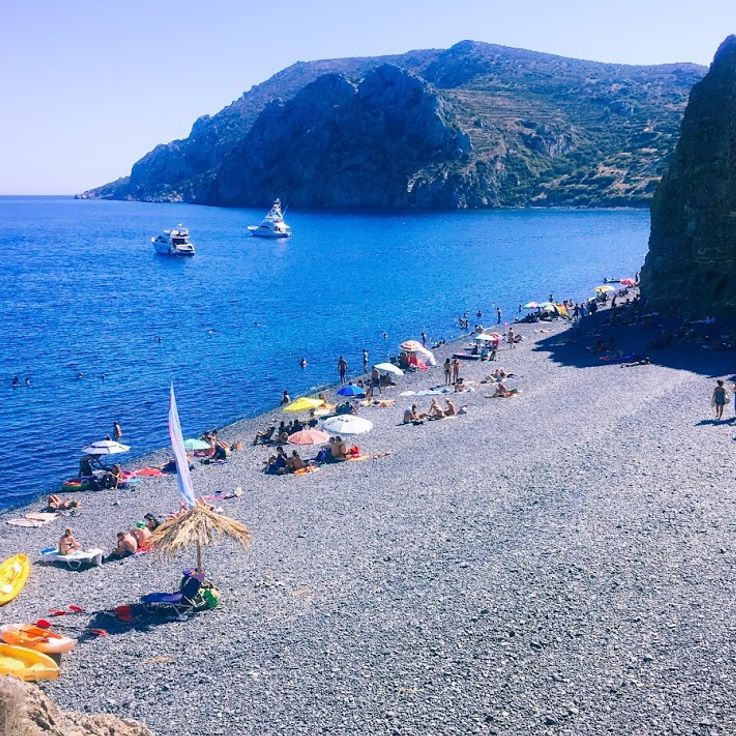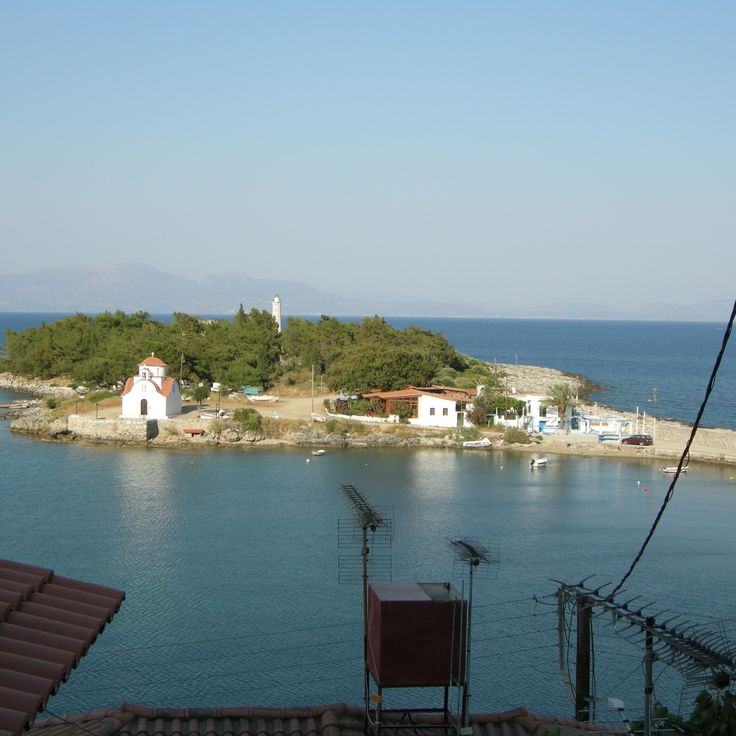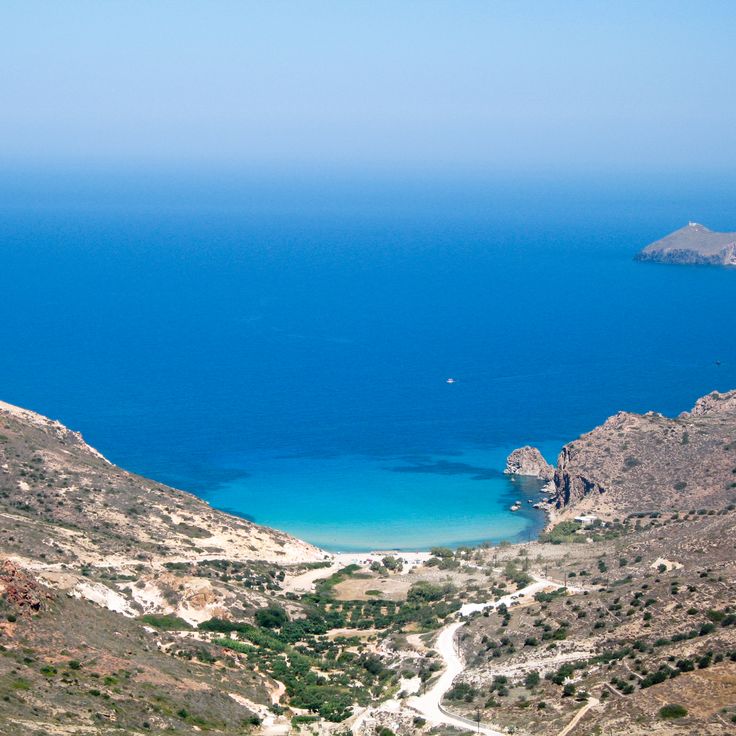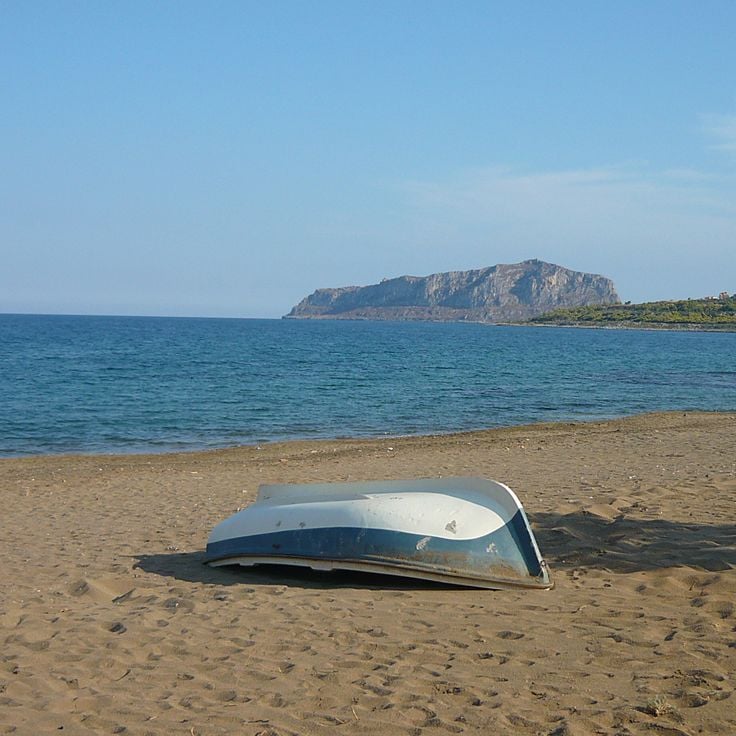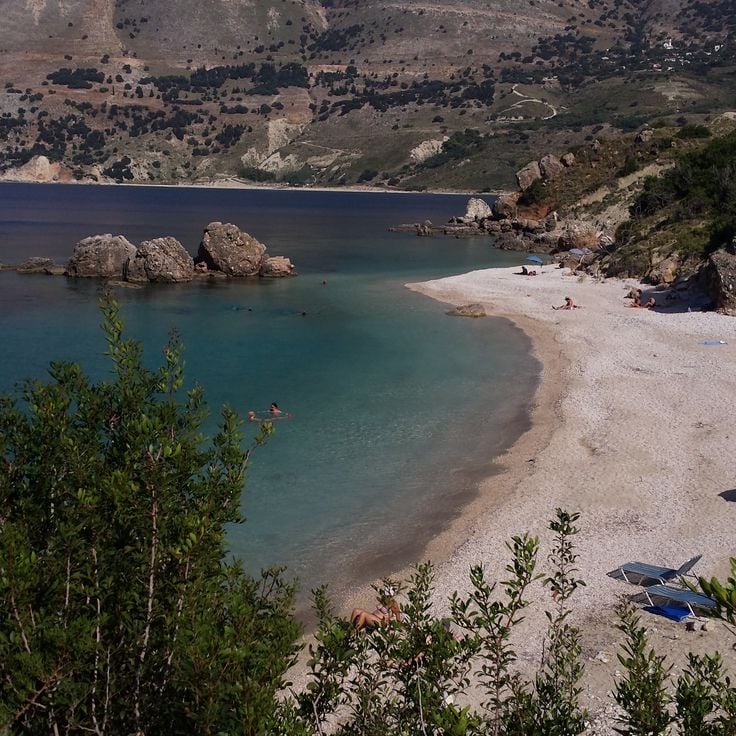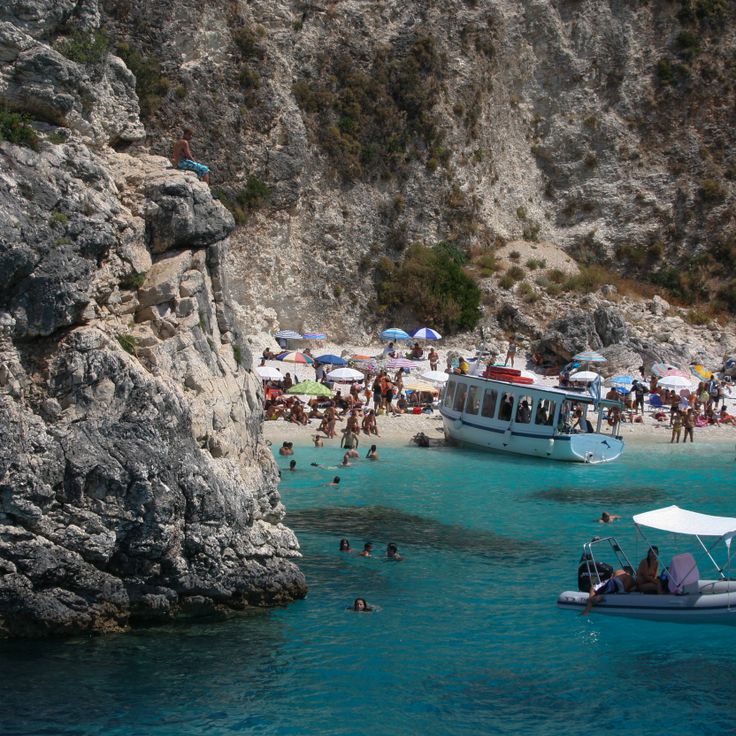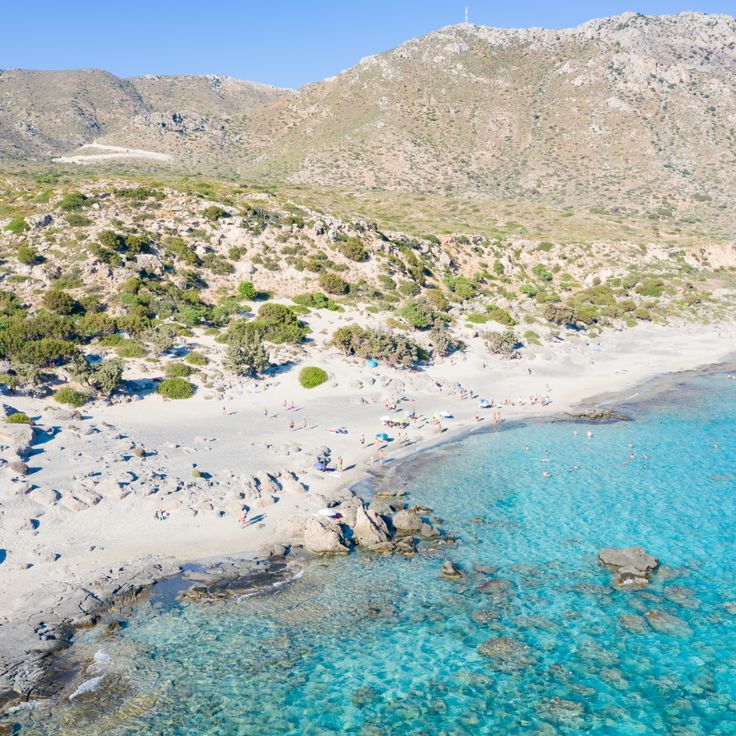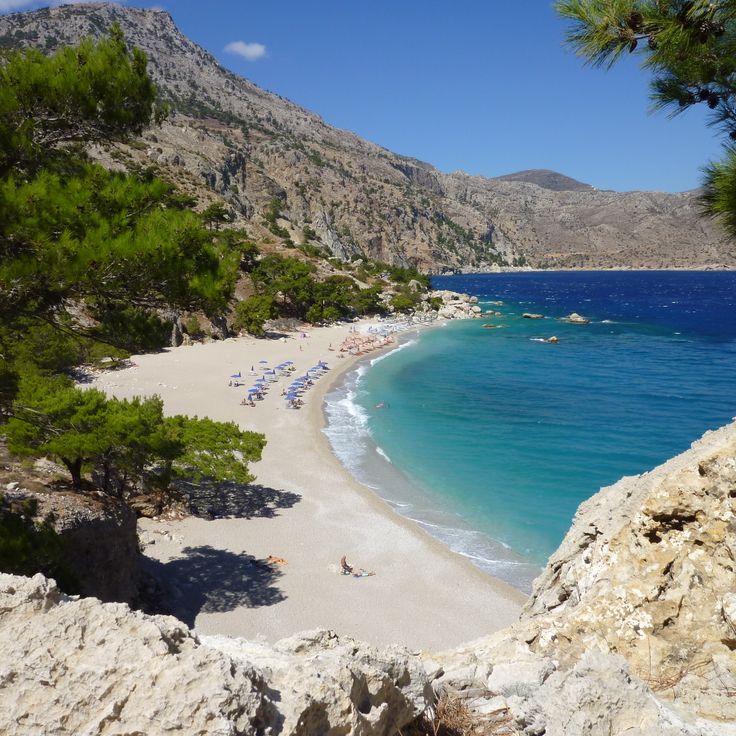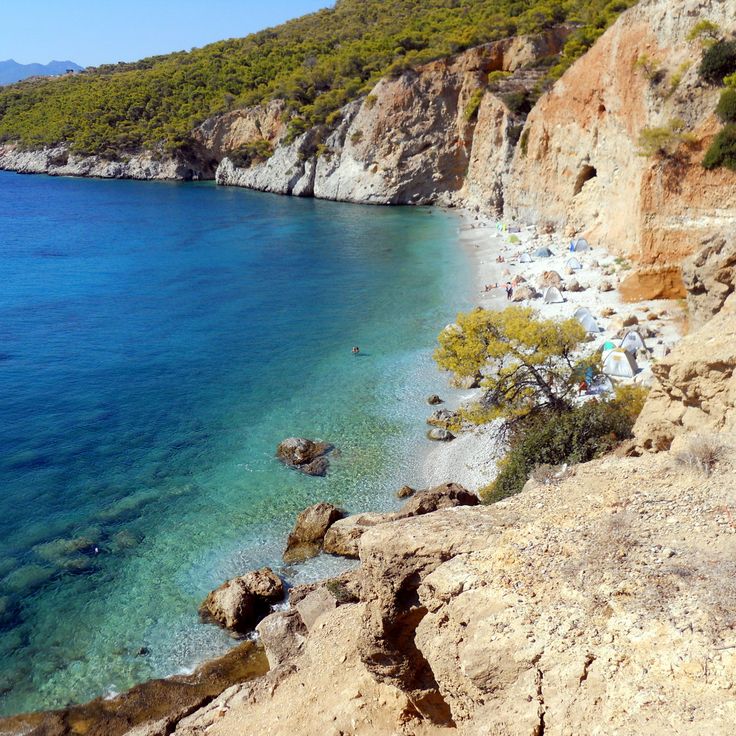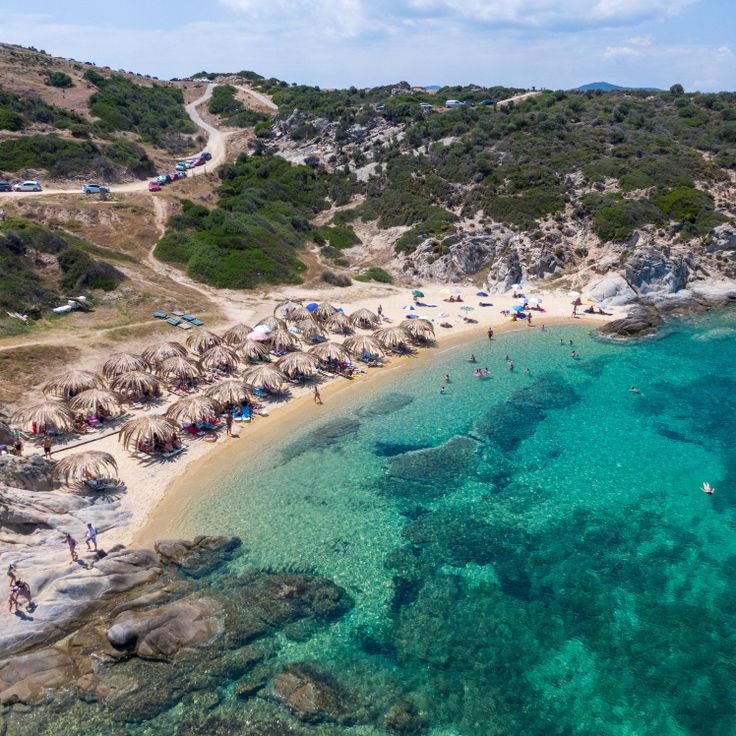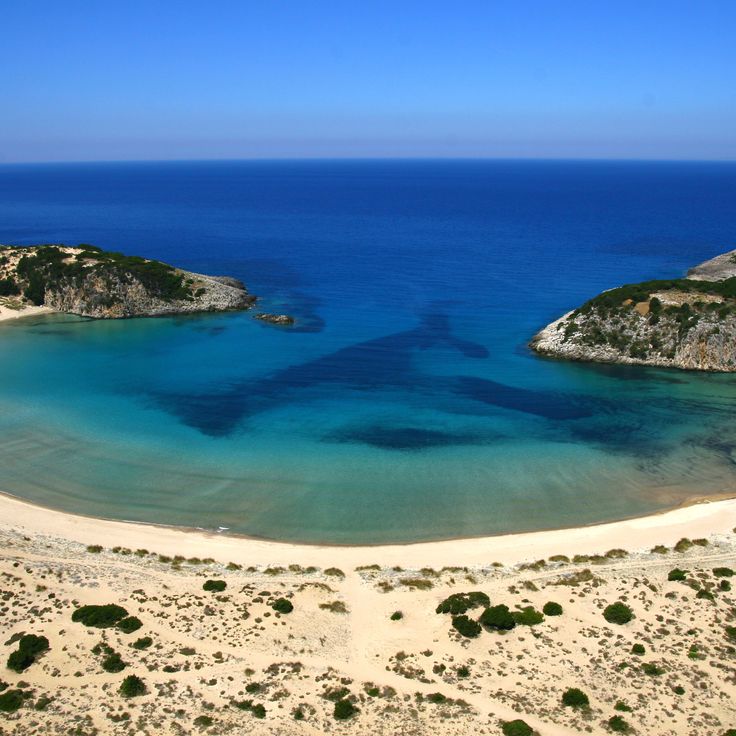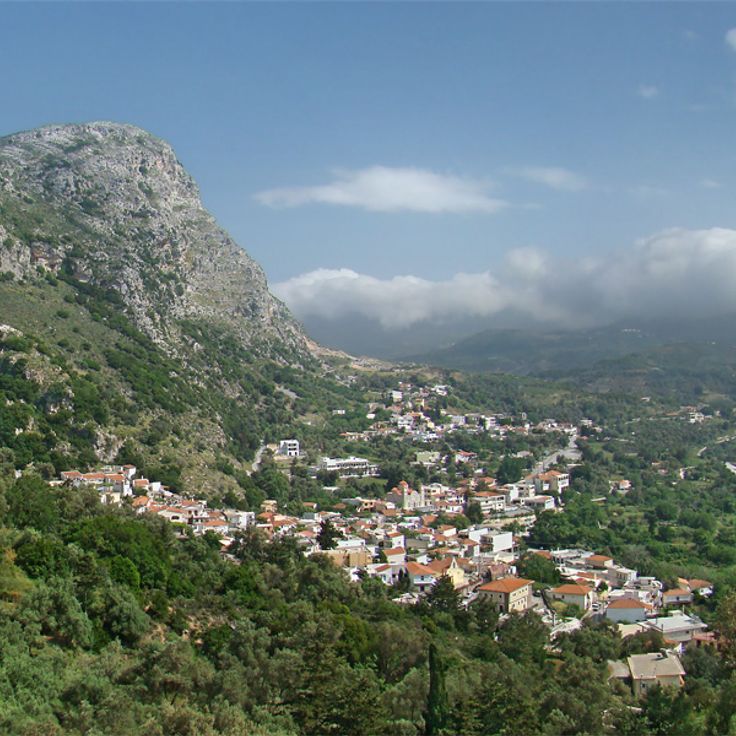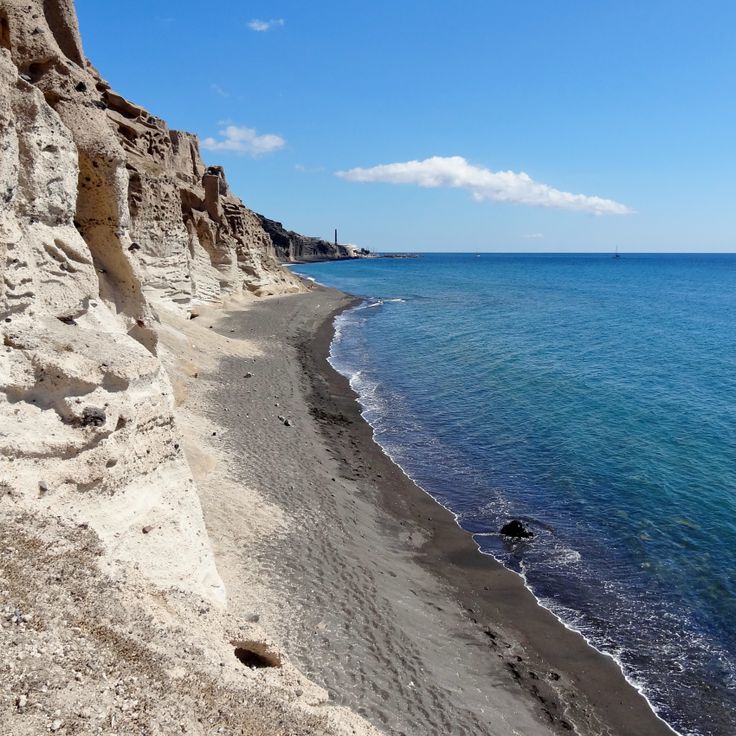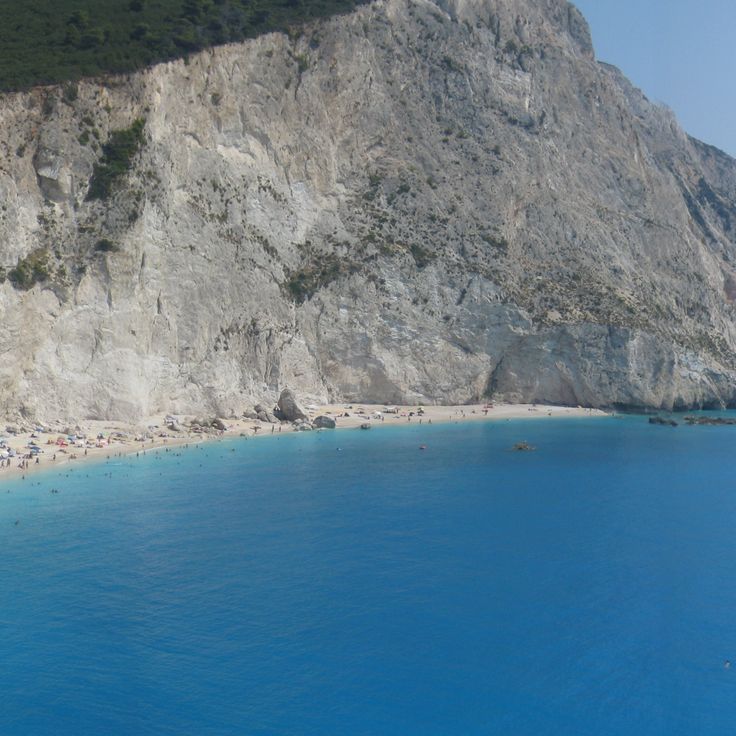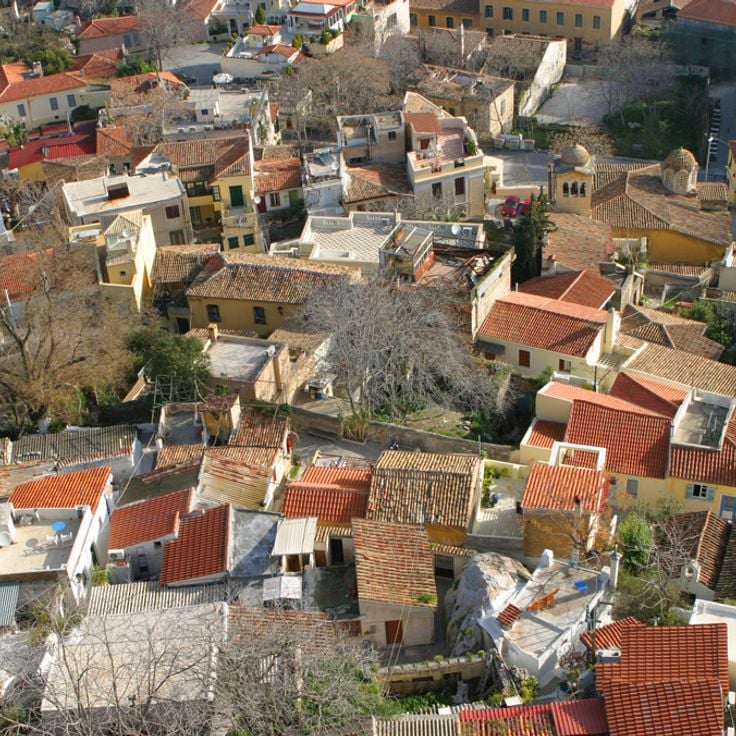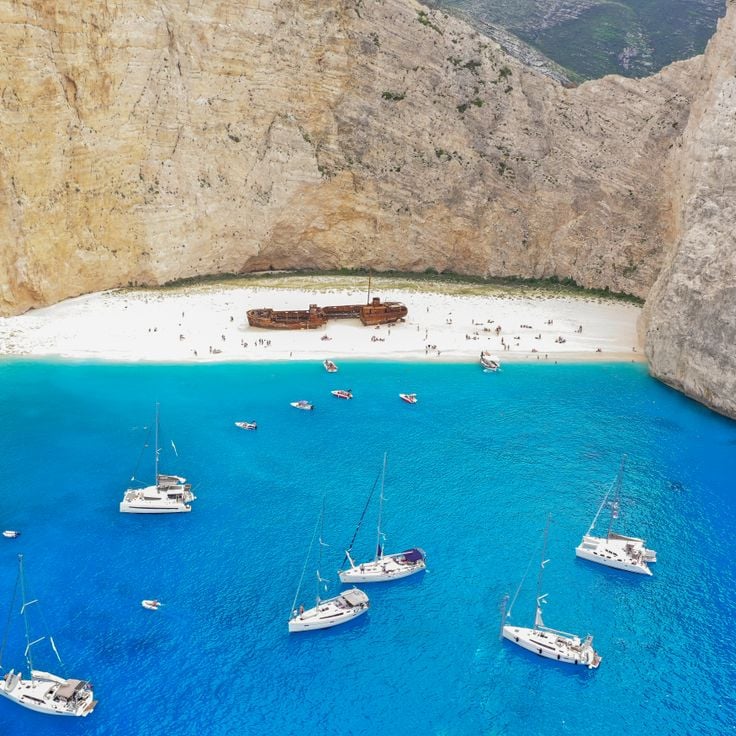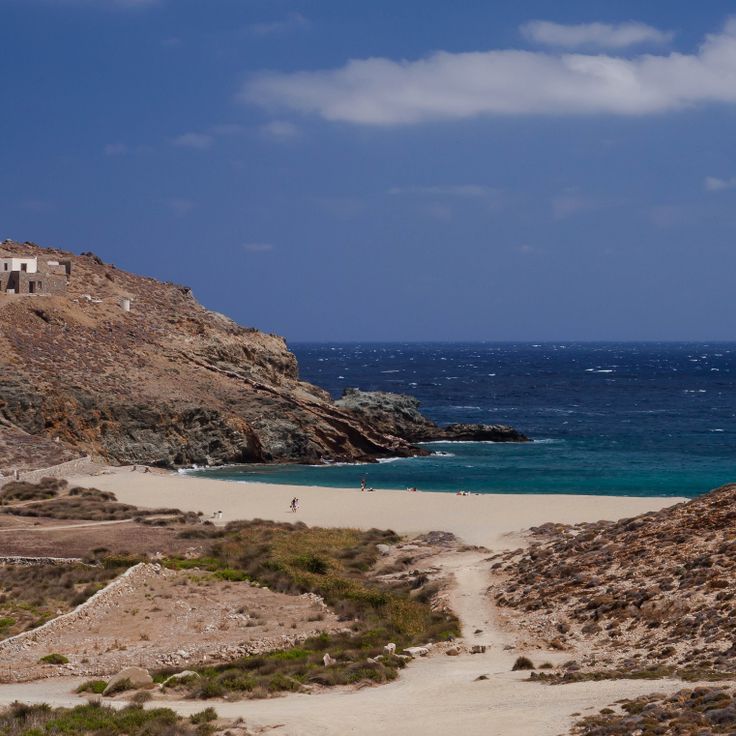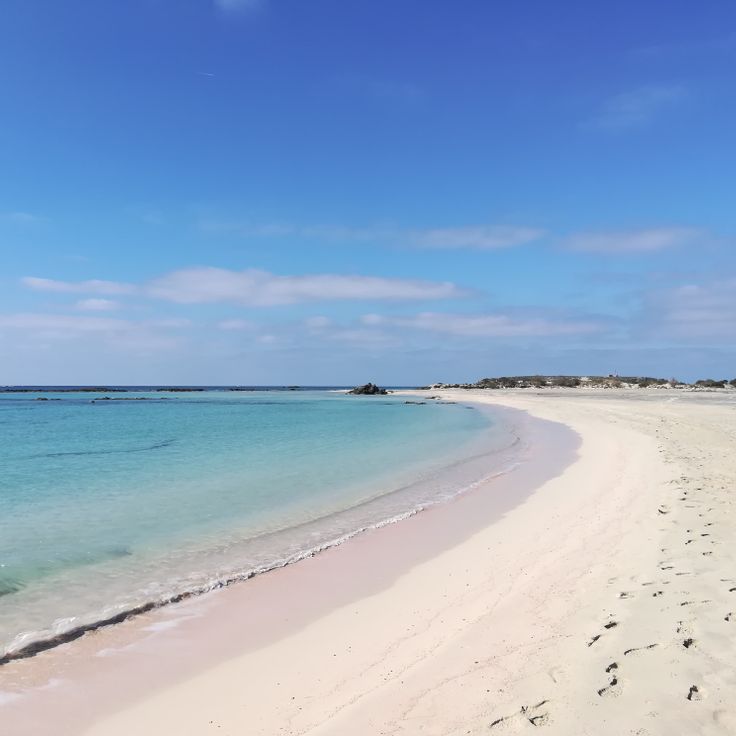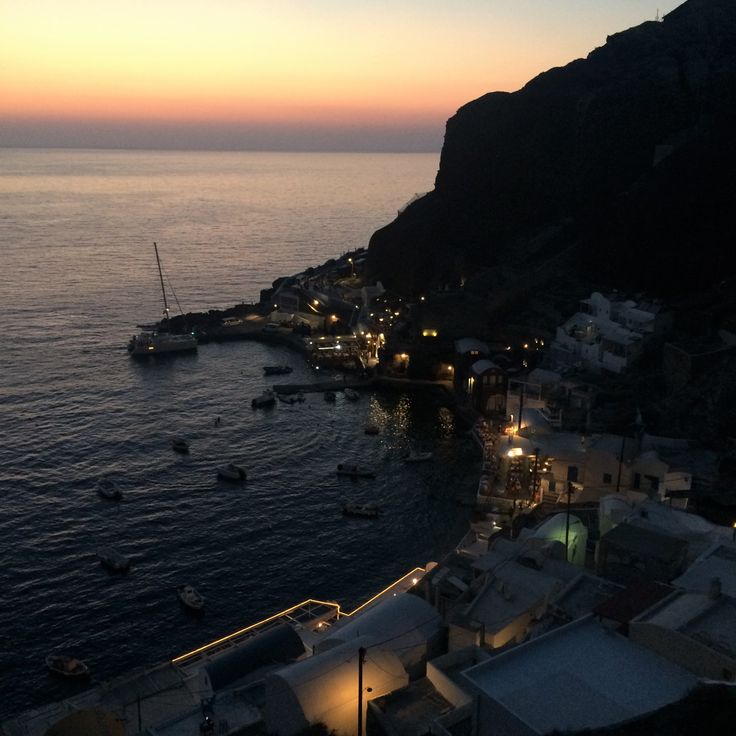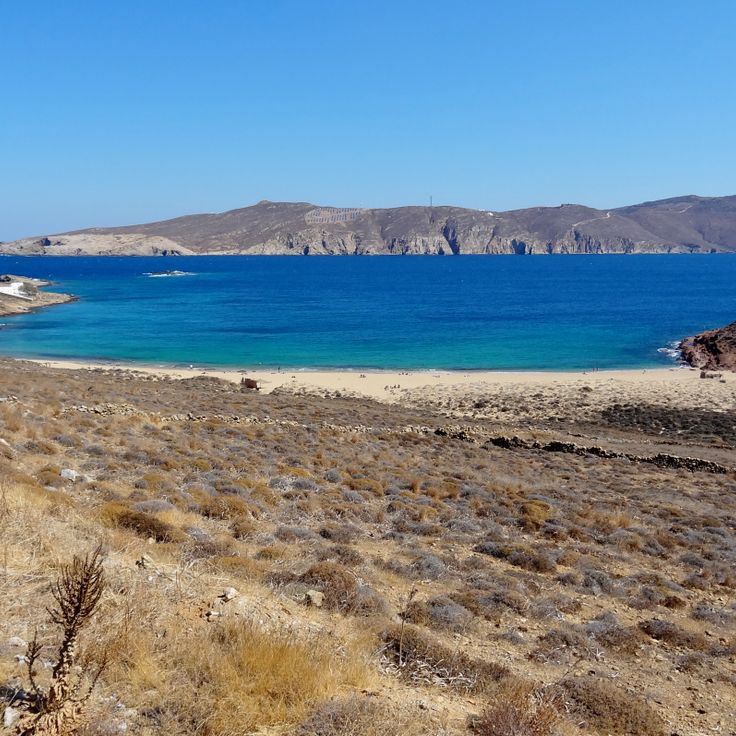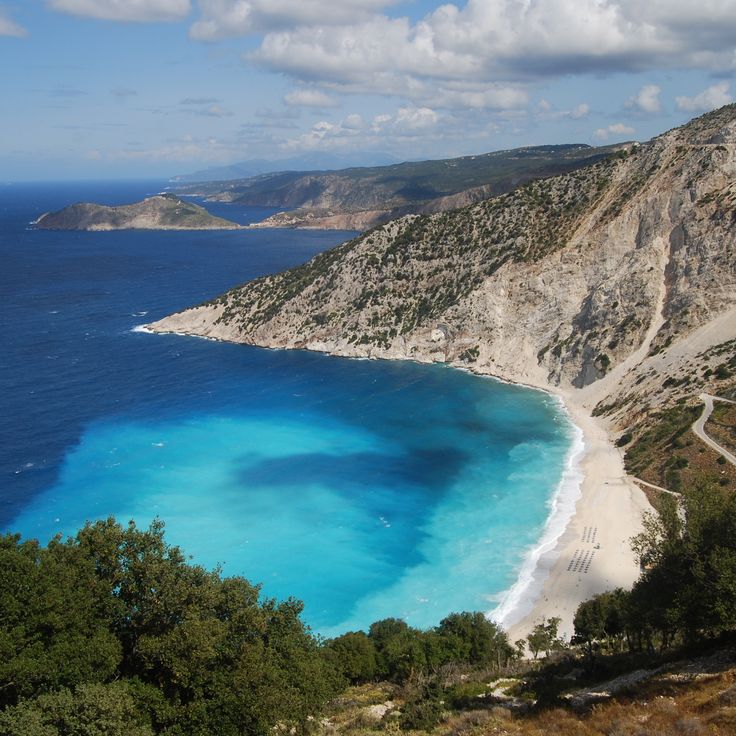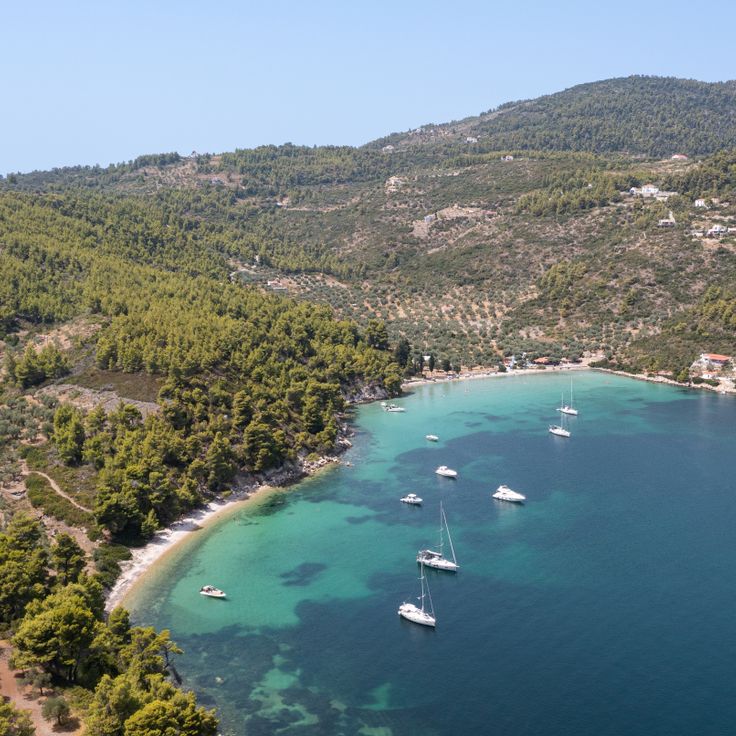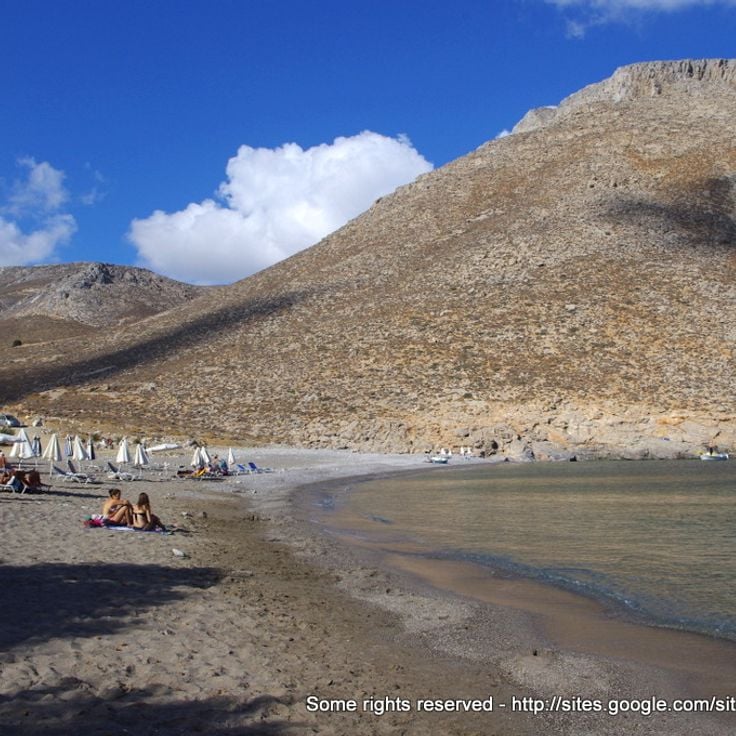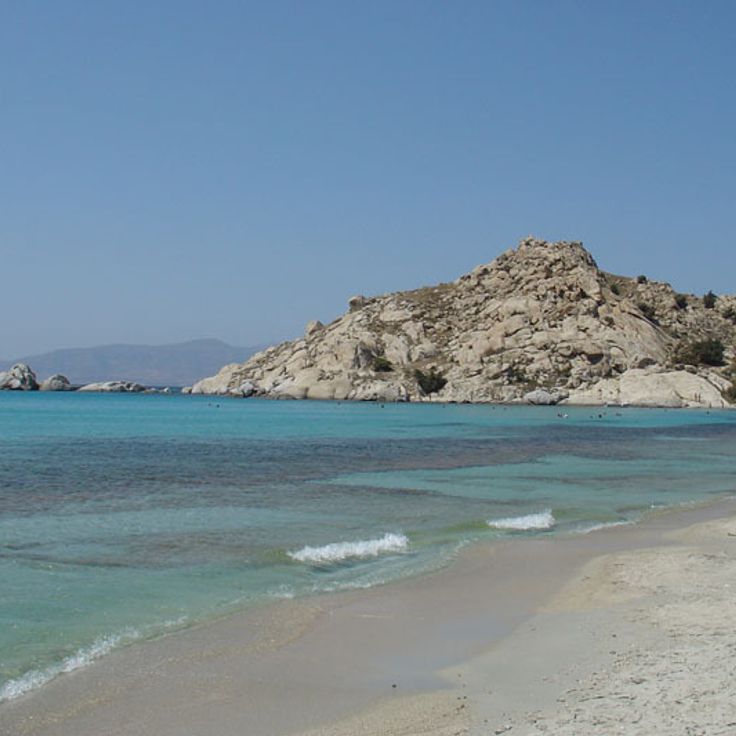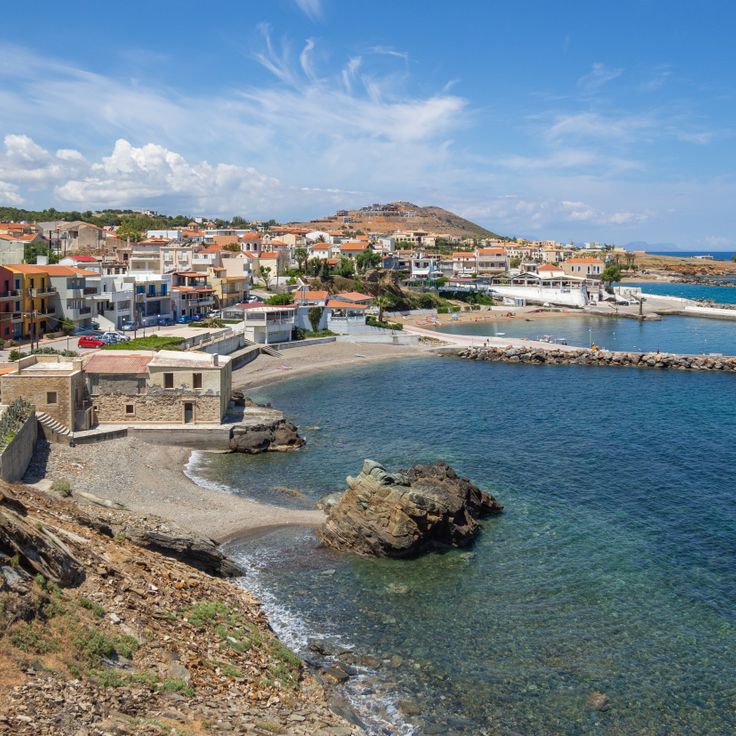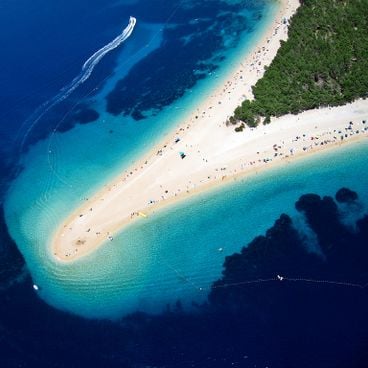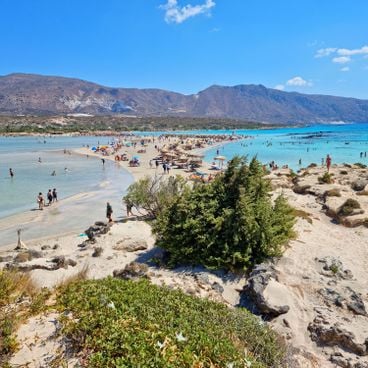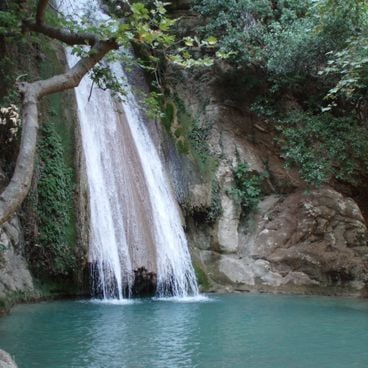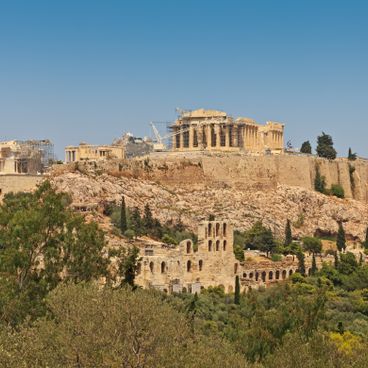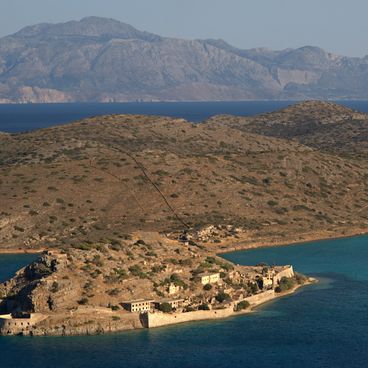Greece is home to many secluded beaches, away from main tourist routes and resorts. These lesser-known coastlines are found on the islands of Crete, Lefkada, Zakynthos, Cephalonia, Milos, and Karpathos. Some feature fine light-colored sand, others black volcanic pebbles from ancient eruptions, and all are surrounded by turquoise waters where the seabed is visible from the surface. Accessing these sites often requires extra effort: steep paths descending from cliffs, unpaved roads crossing Mediterranean scrub, or boat trips from coastal villages. Seitan Limania is nestled in a gorge with rocky walls over 100 meters high, while Egremni Beach is accessible after descending 350 carved steps in the cliffs. Mavra Volia is distinguished by its black lava stones, remnants of an eruption 2200 years ago, and Kedrodasos is home to centuries-old junipers casting shadows on the sand. These beaches generally have little or no tourist infrastructure. The lack of restaurants, parasol rentals, or paved parking preserves their natural state and limits the number of visitors, even during peak summer season. Some areas, such as Marathonisi Island, are partially protected to allow nesting of loggerhead turtles.
Seitan Limania sits in a narrow gorge on the northern coast of Crete, approximately 22 kilometers northeast of Chania. The cove is enclosed by steep rock walls that rise over 100 meters. The beach consists of coarse sand and pebbles. The water is clear and deepens rapidly from the shore. Access requires descending a steep path from the parking area above. The cove faces northeast and is sheltered from southern winds. There are no facilities or services available at the beach.
Egremni Beach stretches for two kilometers along the western coast of Lefkada, framed by white limestone cliffs that rise up to 150 meters above sea level. Access is provided by a staircase of 350 steps descending from the upper cliff path to the shore. The turquoise waters and white pebble beach attract visitors seeking seclusion. The bay is located far from settlements and offers no tourist facilities.
Mavra Volia is a remote beach on the southeastern coast of Chios, notable for its unusual surface of black lava pebbles. The volcanic rocks originate from an eruption that occurred 2200 years ago, giving the beach its distinctive dark appearance. The water is clear and suitable for swimming. Access is via an unpaved road, and facilities at the site are limited.
Marathonisi Beach occupies a small uninhabited island south of Zakynthos and serves as an important nesting site for the protected loggerhead sea turtle. The white sand beach stretches along the southern coast of the island, surrounded by clear turquoise waters. The island is accessible only by boat, typically from Laganas or Keri. Visitors must respect nesting periods, as certain beach areas are closed during breeding months.
Plathiena Beach is located on the northern coast of Milos in a protected bay. This sandy beach extends over a small area and is framed by volcanic rock formations. The turquoise water remains shallow near the shore and is suitable for swimming. The surroundings are sparsely developed, with some tamarisk trees providing natural shade. Access is via an unpaved road from the village of Pollonia.
Pori Beach extends along the southern coast of Koufonisia as a long sandy shore. The clear turquoise water invites swimming, while natural rock formations shape the coastline. The beach offers ample space for sunbathing and is bordered by low cliffs. Access is on foot or by boat, as there is no road connection. Due to its remote location, there are no tourist facilities on site.
Vouti Beach sits on the western coast of Kefalonia and provides a secluded stretch of coastline with fine white sand. The sea displays turquoise shades here and the water remains shallow for several meters. Tall limestone cliffs frame the bay on both sides and offer protection from strong winds. Access is via a steep path that descends from the plateau above. The remoteness keeps the beach particularly quiet, with few visitors even during summer months.
Agiofili Beach occupies a sheltered bay on the eastern coast of Lefkada. The beach combines sand with smooth pebbles and is framed by Mediterranean vegetation and old olive trees. The clear waters of the bay provide good conditions for swimming. Access is via a steep path or by boat from nearby locations. The natural surroundings remain largely undeveloped, with no commercial facilities present.
Kedrodasos Beach is located on the southwestern coast of Crete, approximately six kilometers west of Elafonissi. This coastal area features fine white sand and shallow turquoise waters. The surroundings are characterized by centuries-old juniper trees that give the beach its name and provide natural shade. Mediterranean vegetation and sand dunes frame this relatively difficult to access beach. Kedrodasos can only be reached on foot or by four-wheel-drive vehicle, which limits the number of visitors. The isolation and complete absence of facilities make this location a destination for those who prefer natural, undeveloped beaches.
Kyra Panagia beach is located on the northeast coast of Karpathos and can be reached by dirt road or by boat. The turquoise waters are suitable for swimming and snorkeling. On the shore lies the rusted hull of a 19th-century ship that ran aground here. The surroundings consist of rocky cliffs and Mediterranean vegetation. A small chapel stands near the bay. The beach has no sunbed rentals or tavernas available.
Halikiada Beach is located on the southern coast of Agistri and can be accessed by footpath or boat. This pebble beach stretches between rock formations and offers calm, turquoise waters suitable for snorkeling and swimming. A section of the beach is designated for naturist activities. The natural setting with pine trees and the absence of facilities make this a secluded destination for visitors seeking tranquility.
Tigania Beach is located on the eastern coast of the Sithonia peninsula and features several small coves with fine sand. The shoreline is surrounded by pine forests that provide natural shade. Access is via unpaved roads, which limits visitor numbers. The clear waters are suitable for swimming and snorkeling. The area has remained largely undeveloped.
Voidokilia Beach sits in a protected bay on the western coast of the Peloponnese, distinguished by its semicircular sandy shore that resembles the Greek letter omega. The fine white sand is bordered by natural dunes and the Gialova Lagoon, an important wetland for migratory birds. Above the beach stand the ruins of Paleokastro Castle from the Frankish period.
Lampi Beach is located on the northern coast of Patmos and features a multicolored pebble shore composed of red, black and white stones. The clear waters surround natural rock formations that give the coastline its distinctive appearance. The beach is accessible via an unpaved road or by boat, and due to its remote location, it often provides quiet surroundings away from the main beaches of the island.
Vlichada Beach is located on the southern coast of Santorini and features black volcanic sand alongside tall white rock walls formed by wind and sea erosion. These cliffs of pumice stone and volcanic ash create unusual formations that give the beach a lunar appearance. The relatively remote location results in fewer visitors compared to other beaches on the island.
Porto Katsiki sits on the southwestern coast of Lefkada and ranks among the most remote beaches of the Ionian Islands. This beach stretches along a dramatic limestone cliff that rises nearly one hundred meters above the sea. The fine white sand and clear turquoise water attract visitors seeking tranquility and natural beauty. Access is provided by a steep staircase with over one hundred steps or by boat from the port of Nydri.
Plaka Beach stretches for 4 kilometers along the western coast of Naxos, offering fine sand and shallow, clear water. The beach benefits from consistent Meltemi winds that provide comfortable conditions during summer months. The sandy shoreline sits south of Plaka village and borders undeveloped dune areas with cedar trees that offer natural shade. The water remains shallow for considerable distances, making this beach suitable for families.
Navagio Beach sits on the northwest coast of Zakynthos and can only be reached by boat. The cove is enclosed by vertical limestone cliffs that rise over one hundred meters. The wreck of the freighter MV Panagiotis, which ran aground here in 1980, rests on the shore. The light-colored sand and turquoise water contrast with the white rock walls. Tour boats operate regularly from Porto Vromi and Zakynthos Town to this cove.
Fokos Beach occupies a protected bay on the northeastern coast of Mykonos. The beach stretches along a natural cove with golden sand and scattered rock formations. The exposed position often attracts higher waves during northern winds. The area remains largely undeveloped, with minimal tourist infrastructure. An unpaved access road leads to the beach. A small taverna serving local cuisine operates nearby.
Elafonissi Beach sits on the southwestern coast of Crete and is known for its pink-hued sand created by crushed seashells. The shallow, clear water extends far from shore, creating natural lagoons between the beach and the offshore islet. The area forms part of the Natura 2000 protected network and supports rare plant species and dune vegetation. Access is via a coastal road through the village of Chrysoskalitissa.
Amoudi Bay lies at the foot of the cliffs below Oia and can be reached by descending a steep staircase of approximately 300 steps. This small fishing harbour offers direct access to the Aegean Sea and is surrounded by red volcanic rock formations. Several tavernas serve fresh seafood along the waterfront. Visitors can swim to nearby rock formations or enjoy views of the caldera from this sheltered cove.
Agios Sostis Beach is located on the northern coast of Mykonos and remains one of the less frequented shores on the island. This undeveloped sandy beach stretches along the coastline without tourist facilities. The turquoise waters are suitable for swimming. The bay provides views across neighboring Cycladic islands and the Aegean Sea. The beach is accessible via an unpaved road. Visitors should bring sun protection and provisions, as no amenities are available on site.
Balos Lagoon sits at the northwestern tip of Crete and is accessible via an unpaved road or by boat. The beach consists of fine white sand that takes on a pink tint from crushed shell fragments. The lagoon's waters display turquoise shades and remain shallow across large areas, making wading easy. The lagoon is bordered by the small island of Gramvousa, which features a 16th-century Venetian fortress.
Myrtos Beach lies on the northwest coast of Kefalonia, set between steep limestone cliffs. White pebbles stretch along the shoreline, contrasting with the turquoise water. The sea changes between different shades of blue due to the high limestone content in the water. The cliffs rise above the beach and provide viewpoints from the coastal road above.
Tzortzi Gialos is a secluded beach on the island of Alonnisos in the Sporades. Access requires a 500-meter walk from the nearest road. The water is clear and suitable for swimming. The remote location ensures a quiet environment. The beach features pebbles and lies along the coastline of the island, which forms part of the National Marine Park.
Kaminakia Beach sits on the southern coast of Astypalaia and can only be accessed by boat. The journey takes approximately 30 minutes from Chora. The beach consists of smooth pebbles and offers clear water for swimming. This secluded location has no tourist facilities or umbrellas, so visitors should bring water and provisions. The surrounding area features rocky cliffs that provide shelter from the wind for the beach.
Mikri Vigla beach stretches along the western coast of Naxos, offering two kilometers of fine sand. The geographic position creates consistent winds that make this location a center for windsurfing and kitesurfing activities. The northern section provides calmer waters suitable for swimming, while the southern part caters to water sports enthusiasts. Several schools operate on site, offering equipment rental and instruction. The bay remains relatively quiet outside peak season and can be reached via a paved road from the main town of the island.
Panormos Beach extends for 300 meters along the northern coast of Skopelos. The shore consists of coarse sand and smooth pebbles, while the clear blue water invites swimming. A dense pine forest borders the beach directly and provides natural shade during the summer months. The bay is protected by rock formations on both sides, which ensures calm water conditions.
